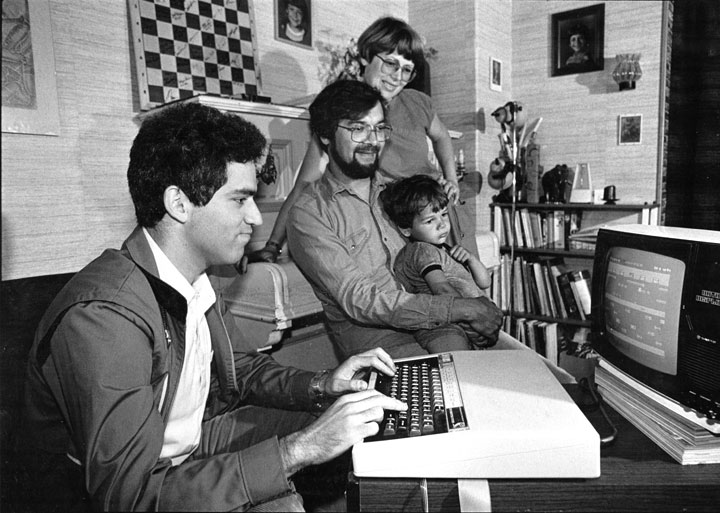A aquesta secció volem compartir els continguts i les pàgines que trobem a internet sobre aquest apassionant món de l’escacs. Ho fem per fer arribar a tots els aficionats i jugadors professionals curiositats, imatges i continguts que trobem interesant des de el Cercle d’Escacs d’Inca. No reproduirem (copiarem) tot el contingut ja que trobem que es millor que, si os agrada o voleu sebre mes, millor anar a la plana web original del autor. Només posarem una breu introducció i l’enllaç des de on trobar l’article original.
Si trobeu informació que creieu pot esser interesant i ens la feu arribar al mail, juntament amb l’enllaç, ho revisarem i possiblement ho afegirem a la nostra plana web.
Grasis a tots per fer de l’escacs un gran joc i esport. Recordeu que s’aprèn mes quan perdem que quan guanyem.
Portable Chess Game Notation (PGN) - thechessworld.com
Portable Chess Game Notation (PGN): Have you ever heard of Steven James Edwards? His name is not so famous in the chess world, but his contribution is valuable. Thanks to him, we can appreciate the beauty of chess games and edit them with ease in different computer databases. He introduced to the community the Portable Game Notation (PGN) Standard in 1993. In this article, we will discuss why it was so important and how you could benefit from that invention.
In the modern world, we often tend to take certain things for granted. Imagine, for example, if there was no chess notation. Chess players would have had a hard time discussing chess. “I wanted to push my pawn that stood near his bishop one square ahead, but I thought he would move his queen and place it in front of my king’s knight.” It is quite hard to understand what moves someone could refer to like that. Many people indeed use this way of describing their games, but knowing the notation makes things much easier. This gets even more important when it comes to writing books and publishing chess games. Humanity solved this issue a long time ago: in 1737, Philipp Stamma wrote a chess book with the algebraic notation.

Portable Chess Game Notation – A bit of history
In the 1990s, chess players started using computers more and more often. It was helpful not only for analyzing chess moves but also, to ease the process of searching for games. In the pre-computer era, chess players would travel to the tournament with big bags full of chess books and magazines. It got to be much more convenient to bring only a computer or a laptop with them to the tournaments.
What did Kasparov have to do with it?
The first computer chess database was presented in 1987: it was ChessBase 1.0. The story of its creation is exciting and inspirational. It was none other than the great chess champion Garry Kasparov who had encouraged its launch and development.
Portable Chess Game Notation (PGN): Complete Guide

¿En qué consiste el título de Maestro Candidato?
El título de Maestro Candidato es el cuarto en importancia en la escala internacional, por debajo del de Gran Maestro, Maestro Internacional y Maestro FIDE. Como su propio nombre indica, esta distinción se concede a jugadores que son aspirantes a convertirse en maestros. Al igual que los anteriormente mencionados, el título de CM se conserva durante toda la vida una vez conseguido y es otorgado por la Federación Internacional de Ajedrez o FIDE.
Los CMs son jugadores muy fuertes, con un Elo FIDE clásico entre 2200 y 2299. Los Maestros Candidatos compiten regularmente en torneos de primera fila tales como abiertos (cualquier jugador puede participar), cerrados (restringidos a una serie de jugadores)

¿Cómo se consigue el título de Maestro Candidato?
El título de CM se creó en 2002 y es similar al de Maestro FIDE, puesto que no es necesario conseguir normas, como sí ocurre con el de Gran Maestro o Maestro Internacional. Actualmente, la FIDE otorga la distinción de Maestro Candidato a un jugador que logre llegar a los 2200 puntos Elo en ajedrez clásico, si bien también puede concederse por actuaciones destacadas en campeonatos continentales o nacionales. A fecha de 2020, existen alrededor de 1.700 Maestros Candidatos en activo en el mundo—un porcentaje muy reducido si lo comparamos con el número de aficionados al ajedrez del planeta.
